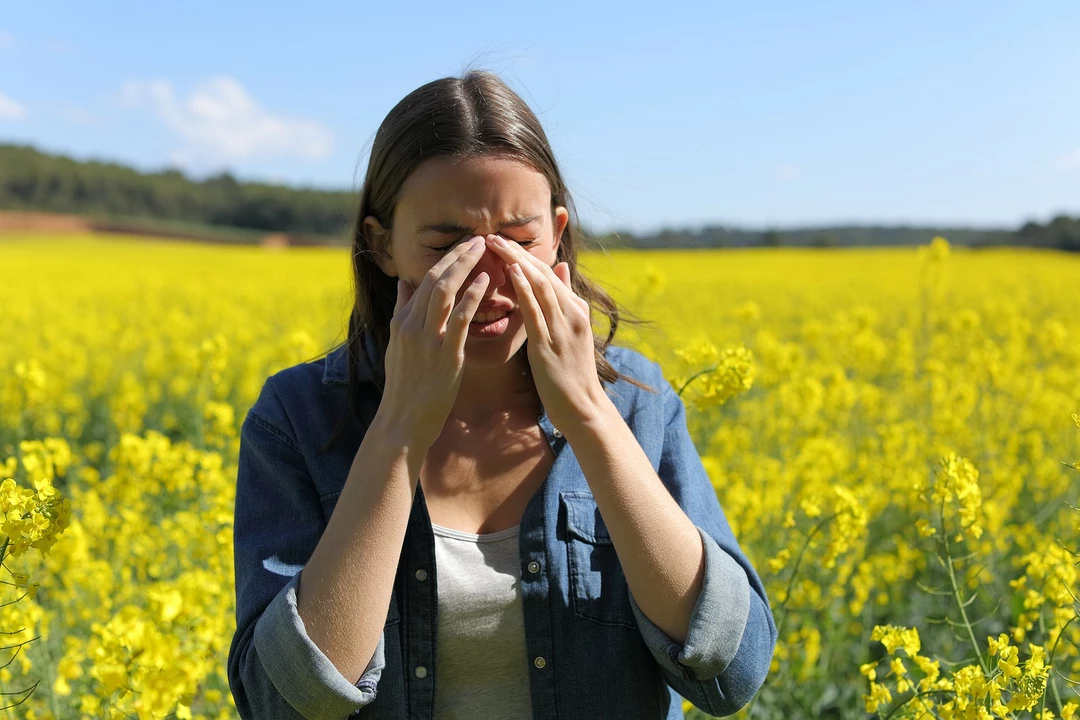How to create an allergy-friendly garden to enjoy during seasonal allergy season

Introduction: Understanding Seasonal Allergies and Gardens
As a gardening enthusiast, I know that seasonal allergies can make it difficult for many people to fully enjoy their gardens. However, there are several steps that can be taken to create an allergy-friendly garden that everyone can enjoy. In this article, I will share my tips and insights on how to create an allergy-friendly garden, as well as how to maintain it during the allergy season.
Choose Allergy-Friendly Plants
One of the most important aspects of creating an allergy-friendly garden is selecting the right plants. When choosing plants, it's essential to consider their pollen production, as high-pollen plants can exacerbate allergy symptoms. Opt for plants with low pollen levels, such as hydrangeas, roses, and peonies. Additionally, consider using native plants in your garden, as they are less likely to cause allergies compared to non-native species.
Plant Placement Matters
Where you place your plants in your garden can also play a significant role in minimizing allergy symptoms. To reduce exposure to pollen, keep high-pollen plants away from areas where you spend the most time, such as seating areas and patios. Additionally, consider planting windbreaks, such as hedges or trees, to help block pollen from being blown into your garden by the wind.
Avoid Overly Fragrant Plants
While fragrant plants can add a lovely aroma to your garden, they can also trigger allergy symptoms. For an allergy-friendly garden, avoid planting overly fragrant flowers and plants, such as jasmine and gardenias. Instead, choose plants with a mild scent or no scent at all.
Regular Garden Maintenance
Keeping your garden well-maintained can help reduce allergens in the environment. Regularly mow your lawn, as letting grass grow too long can lead to higher pollen production. Additionally, keep weeds under control, as they can also release pollen and contribute to allergy symptoms. Pruning trees and shrubs regularly can also help minimize pollen production.
Timing Is Key
When working in your garden, it's important to be aware of the time of day. Pollen counts are typically highest in the early morning and late afternoon, so try to schedule your gardening activities for midday or early evening. Additionally, avoid gardening on particularly windy days, as pollen can be easily blown around and trigger allergy symptoms.
Wear Protective Gear
When gardening during allergy season, it's essential to protect yourself from allergens. Wearing a mask, gloves, and sunglasses can help reduce your exposure to pollen. Additionally, consider wearing long sleeves and pants to minimize skin contact with allergens.
Create a Barrier Between Indoors and Outdoors
To prevent pollen and other allergens from entering your home, make sure to create a barrier between your indoor and outdoor spaces. Keep windows and doors closed during high-pollen times, and consider using an air purifier to help remove allergens from inside your home. Additionally, remove your shoes and change your clothes after spending time in the garden to prevent allergens from being tracked inside.
Keep an Eye on Pollen Counts
During allergy season, it's essential to stay informed about local pollen counts. Monitoring pollen levels can help you determine when it's best to work in your garden or spend time outdoors. Many weather websites and apps provide pollen count information, making it easy to stay up-to-date.
Consult with an Allergist
If you or a family member suffers from severe seasonal allergies, it's essential to consult with an allergist. They can provide guidance on the best plants for your garden, as well as recommend treatments and strategies to help manage allergy symptoms. By working with an allergist, you can create a garden that is both beautiful and allergy-friendly.
Conclusion
Creating an allergy-friendly garden may require a little extra planning and effort, but the results are well worth it. By carefully selecting plants, practicing proper garden maintenance, and taking precautions to protect yourself from allergens, you can create a beautiful outdoor space that everyone can enjoy during allergy season.






Comments
Stephen Wunker
June 3, 2023 AT 00:40Everyone loves the idea of a perfectly curated, allergy‑free oasis, but let's face reality: pollen doesn't ask permission before it invades your nose. The notion that we can engineer nature to obey our fragile immunities is as naive as believing a politician will keep promises. Plants have evolved millennia to spread their genes, and pollen is the most efficient courier they have. By swapping out high‑pollen species for low‑pollen ones, you're merely shifting the battleground, not eliminating the war. Consider the wind: it carries spores, mold, and countless invisible irritants regardless of which rose you plant. Wearing masks and gloves merely masks the problem, not solves it. Moreover, the industry pushing “allergy‑friendly” garden kits is capitalizing on fear, turning a natural process into a commercial commodity. The silence of a garden is an illusion; even the most sterile plot buzzes with microscopic life. If you really want to enjoy blossoms, perhaps the answer lies in adjusting your own immune response, not in dictating nature's behavior. Immunotherapy, diet, and timing your exposure outweigh any hedge of a hedgerow. The philosophical takeaway is this: you cannot control the winds, you can only learn to navigate them. So instead of obsessing over plant lists, focus on resilient design that respects ecological balance. In that respect, you reduce maintenance and the inevitable pollen load without pretending you've tamed the wild. Ultimately, the garden's purpose is to remind us of the uncontrollable chaos of life, not to be a sterile exhibit. Embrace the imperfection, and you’ll find peace even when sneezes echo across the lawn.
Jhoan Farrell
June 3, 2023 AT 01:53Wow, this guide really hits the spot for anyone trying to stay comfy outdoors 🌿😊. I love the tip about checking pollen counts before heading out – saves me from those surprise sneezes. Using windbreaks is such a smart move, and it adds privacy too! Thanks for mentioning mask wear; I always forget about that until my eyes start watering. Keep the awesome advice coming, it makes gardening a lot less stressful for us sensitive souls! 🙌
Jill Raney
June 3, 2023 AT 03:16While the practical advice is sound, one can't ignore the underlying agenda. The push for so‑called "low‑pollen" varieties conveniently aligns with corporate interests seeking to market proprietary seeds. It's no coincidence that these recommendations appear alongside sponsored links to big‑agri firms. By steering gardeners toward select cultivars, they subtly reshape ecosystems to suit profit motives, all under the guise of health. One should remain vigilant about who benefits from these seemingly altruistic tips.
bill bevilacqua
June 3, 2023 AT 04:40i guess i see what u tryin 2 do... but honestly,, why bother? most of these plant lists are just marketing hype,,, the wind will still bring stuff everywhere... u cant stop pollen,, u can only mask it,, and thats about it... maybe just enjoy a potted plant inside?? lol,, or not??
rose rose
June 3, 2023 AT 15:46This is nonsense.
Emmy Segerqvist
June 3, 2023 AT 17:10Oh, the drama! You think a simple garden plan could possibly tame the wild forces of nature??!!
Trudy Callahan
June 4, 2023 AT 19:33One might ponder: is the garden a sanctuary, or merely a stage upon which the universe projects its relentless pollen‑filled drama? In the grand tapestry of existence, each flower is a fleeting thought, each sneeze a reminder of impermanence; thus, to cultivate "allergy‑friendly" spaces is to chase a mirage, an aspirational void, whilst the cosmos continues its indifferent dance. Yet, perhaps therein lies the paradoxical beauty-by confronting the inevitable, we sculpt moments of mindful serenity amidst the inevitable storm.